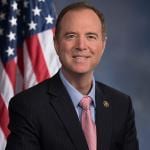Jerry Falwell, Jr.’s reputation only grows larger in proportion to Donald Trump’s critics’ need to scapegoat his supporters and enablers. Since evangelicals voted for Trump in large numbers, so-called evangelical leaders bear the disgrace for the movement’s performance in 2016 at the ballot box. Combine that with the less than honorable aspects of Liberty University’s president’s personal life as reported by one of the university’s alums in Politico, and you have a territory and level of toxicity that is easy for academics and journalists to excommunicate from the realm of good.
John Fea provides a good example of using both as representative of Trump voters and defenders and a product of evangelicalism’s (even fundamentalism’s) worst features:
First, anyone who has studied the history of American fundamentalism will be familiar with the kind of power Falwell Jr. wields. Falwell Jr. inherited Liberty from his father, Jerry Falwell Sr., the founder of the school. Falwell Sr. was the product of the separatist fundamentalist movement, an approach to conservative Protestantism that continued to cling to the label “fundamentalism” long after other mid-twentieth-century conservative Protestants had abandoned it in favor of the term “evangelical.” Liberty University (originally Lynchburg Baptist College) was born out of this movement.
Falwell Sr.’s brand of fundamentalism not only opposed secular humanism and liberal Protestantism, but it also refused to fellowship or cooperate with conservative Christians willing to participate in religious services and events with liberal Protestants. This was known as “second-degree separation” and, as I argued in several essays in the 1990s, it was a defining characteristic of the fundamentalist movement in the years following the fundamentalist-modernist controversies of the 1920s.
When so-called “neo-evangelicals” such as Billy Graham, Carl F.H. Henry, John Harold Ockenga, and others sought to forge a more irenic brand of conservative Protestantism after World War II known as “neo-evangelicalism,” other alumni of the fundamentalist-modernist controversies such as John R. Rice, Carl McIntire, Robert T. Ketcham, and Bob Jones Jr. continued to cling to the label “fundamentalism.” (Falwell Sr. was a disciple of Rice, a Wheaton, Illinois and later Murfreesboro, Tennessee -based evangelist who parted ways with Graham over the latter’s willingness to allow liberal clergy to pray at his crusades).
These separatist fundamentalists were known for empire building. …
When Jerry Falwell Sr. formed the Moral Majority in 1979, many self-identified fundamentalists rejected him. Falwell Sr.’s willingness to work with like-minded Catholics and Mormons on moral issues was just too much for separatists such as Bob Jones Jr. Yet Falwell Sr. never really joined the neo-evangelical fold. Since the 1980s, Falwell Sr and the empire he created in Lynchburg has remained in a kind of no-man’s land–situated somewhere between the culturally-engaged evangelicals and the old separatists.
Though Falwell Sr. eventually parted ways with his separatist fundamentalist roots, he never abandoned the empire-building mentality of the religious culture in which he came of age as a minister. Falwell Sr. ran Liberty University like a dictator. So does his son. In this sense, there is more continuity between father and son than Ambrosino allows.
Fundamentalism, separatism, authoritarianism, empire — scary stuff.
But there may be hope. Remember that despite all the toxicity that swirls around Falwell, his family, and Liberty University, Karen Swallow Prior still teaches English at the university and lots of Trump critics and ex-evangelicals love her. Prior even received favorable coverage from The New Yorker:
On a recent afternoon at Liberty University, in Lynchburg, Virginia, Karen Swallow Prior was leading a discussion of Rudyard Kipling’s “The White Man’s Burden” for the seventeen students enrolled in her English course on Victorian literature. Prior, who is fifty-three and was wearing a high-necked floral-print dress, looked as if she might have stepped out of “Great Expectations,” except for her startling magenta lipstick, and her hair, which is dyed bright orange at the crown and a paler blond around her face, resembling an upside-down flame. On the whiteboard behind her in the windowless classroom, she’d written, “Colonialism, Imperialism, Darwinism, Orientalism, Eurocentrism / Anglocentrism.”
She read aloud, “Take up the White Man’s burden— / Send forth the best ye breed— / Go bind your sons to exile / To serve your captives’ need,” then noted, “Kipling was encouraging the United States to use Christianity as a tool of empire.” The aggressive spread of the faith was an ideal of the Victorian age, she went on, but that doesn’t mean that the Bible supports imperialism. During the nineteenth century, Christianity was used as a justification for secular political projects, and this collapse continues today. “So much of what we think is Biblical Christianity is really Victorian,” she said. For example, contemporary Christians often claimed that traditional notions of proper gender roles—such as that a woman’s place was in the home—came from scripture, when, in fact, they were largely products of nineteenth-century European thought. “It’s super important to learn to distinguish between Victorianism and Biblical Christianity,” she said. It was the last day of classes before the Christmas break, and, outside, among the red-brick buildings, carols played from speakers on lampposts hung with wreaths. Students might have been forgiven for paying scant attention to the Victoriana, but Prior’s earnest-looking students, most of them women, were so engrossed in her lecture that, when the class ended, they lingered around her, reluctant to leave.
So here we have one of those anomalies that much contemporary analysis cannot fathom. Falwell is an evangelical with the morals of Donald Trump. He is a fundamentalist who won’t cooperate with evangelicals. He is power hungry and controls his empire with self-aggrandizing zeal. And yet, on the very campus that Falwell malignantly micro-manages, there works an English professor who teaches texts that are far from the literature of the rapture and the doctrines of inerrancy. That professor even espouses politics that are remote from president Trump’s brand of Republicanism.
So how far does today’s guilt-by-association logic go? If Jerry Falwell needs to be cancelled along with the evangelicals for whom he is symbolic, what about everyone who teaches and studies at Liberty? But if wholesome parts of Liberty University exist in the curriculum, faculty, students, and administration, doesn’t Falwell get credit for that? In other words, if Prior continues to teach unimpaired at Liberty, can Falwell be all bad?
Imagine that, someone who is not Jesus and both black and white.












